第25章 CHAPTER II.(4)
While M. de Choiseul, satisfied with the person whom M. de Brienne had presented, despatched him to Vienna with every eulogium calculated to inspire unbounded confidence, the Marquis de Durfort sent off a hairdresser and a few French fashions; and then it was thought sufficient pains had been taken to form the character of a princess destined to share the throne of France.
The marriage of Monseigneur the Dauphin with the Archduchess was determined upon during the administration of the Duc de Choiseul.
The Marquis de Durfort, who was to succeed the Baron de Breteuil in the embassy to Vienna, was appointed proxy for the marriage ceremony; but six months after the Dauphin's marriage the Duc de Choiseul was disgraced, and Madame de Marsan and Madame de Guemenee, who grew more powerful through the Duke's disgrace, conferred that embassy, upon Prince Louis de Rohan, afterwards cardinal and grand almoner.
Hence it will be seen that the Gazette de France is a sufficient answer to those libellers who dared to assert that the young Archduchess was acquainted with the Cardinal de Rohan before the period of her marriage.
A worse selection in itself, or one more disagreeable to Maria Theresa, than that which sent to her, in quality, of ambassador, a man so frivolous and so immoral as Prince Louis de Rohan, could not have been made. He possessed but superficial knowledge upon any subject, and was totally ignorant of diplomatic affairs. His reputation had gone before him to Vienna, and his mission opened under the most unfavourable auspices. In want of money, and the House of Rohan being unable to make him any considerable advances, he obtained from his Court a patent which authorised him to borrow the sum of 600,000 livres upon his benefices, ran in debt above a million, and thought to dazzle the city and Court of Vienna by the most indecent and ill-judged extravagance. He formed a suite of eight or ten gentlemen, of names sufficiently high-sounding; twelve pages equally well born, a crowd of officers and servants, a company of chamber musicians, etc. But this idle pomp did not last; embarrassment and distress soon showed themselves; his people, no longer receiving pay, in order to make money, abused the privileges of ambassadors, and smuggled [I have often heard the Queen say that, at Vienna, in the office of the secretary of the Prince de Rohan, there were sold in one year more silk stockings than at Lyons and Paris together. --MADAME CAMPAN.] with so much effrontery that Maria Theresa, to put a stop to it without offending the Court of France, was compelled to suppress the privileges in this respect of all the diplomatic bodies, a step which rendered the person and conduct of Prince Louis odious in every foreign Court. He seldom obtained private audiences from the Empress, who did not esteem him, and who expressed herself without reserve upon his conduct both as a bishop and as an ambassador. He thought to obtain favour by assisting to effect the marriage of the Archduchess Elizabeth, the elder sister of Marie Antoinette, with Louis XV., an affair which was awkwardly undertaken, and of which Madame du Barry had no difficulty in causing the failure. I have deemed it my duty to omit no particular of the moral and political character of a man whose existence was subsequently so injurious to the reputation of Marie Antoinette.